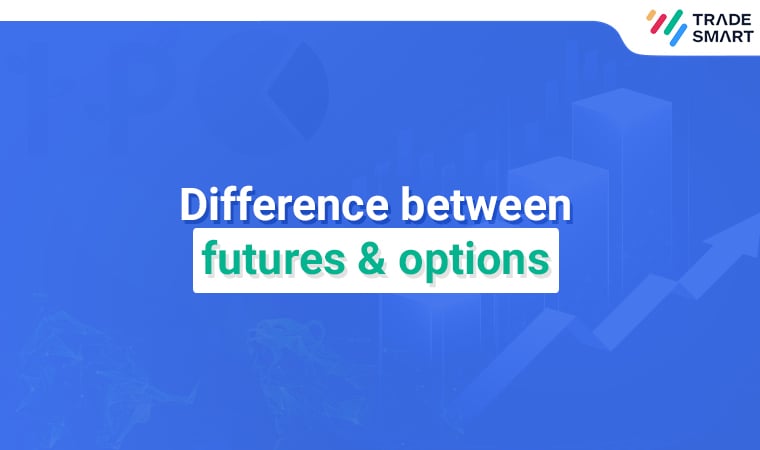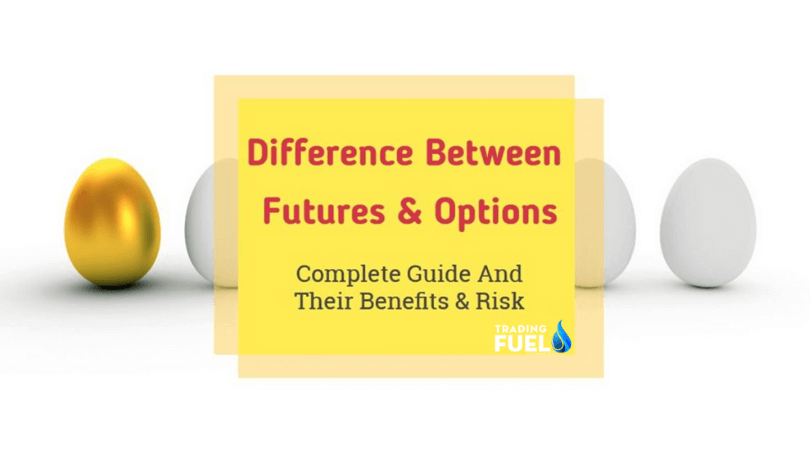Whether you’re a novice or seasoned investor, delving into the complex world of financial derivatives can be a thrilling yet daunting task. Two prominent instruments that ignite curiosity among traders are futures and options. While they share similarities, these contracts possess distinctive characteristics that set them apart. This article aims to unravel the intricacies, providing a comprehensive overview of the differences between futures and options trading, empowering you to navigate these dynamic markets with informed decision-making.

Image: tradesmartonline.in
Laying the Foundation: Futures vs. Options Defined
Futures Contracts: Envisioned as legal agreements that obligate the buyer to purchase or the seller to deliver an underlying asset (such as commodities, indices, or currencies) at a predetermined price and future date. Futures play a pivotal role in managing risk and safeguarding against market volatility.
Options Contracts: In contrast, options grant the holder the right, but not the obligation, to buy (in the case of call options) or sell (in the case of put options) an underlying asset at a specified price (known as the strike price) within a stipulated timeframe. Unlike futures, options provide flexibility, allowing traders to exercise their rights or let them expire without incurring any further obligations.
Essential Distinctions Unveiled
Armed with a basic understanding of futures and options, let’s delve into their fundamental differentiators:
- Obligation vs. Right: Futures contracts impose a binding obligation on both parties to complete the transaction on the specified date, whereas options offer a non-obligatory right, allowing the holder to choose whether to exercise it based on market conditions.
- Settlement: Futures contracts necessitate the physical delivery of the underlying asset upon expiration, while options provide a choice between physical delivery or cash settlement, depending on the underlying asset and contract specifications.
- Risk Profile: Futures trading conllevate higher risk due to the mandatory fulfillment of the contract, potentially resulting in substantial losses if market movements prove unfavorable. Options, on the other hand, limit potential losses to the premium paid upfront, providing a defined risk-reward framework.
- Margin Requirements: Futures demand higher margin requirements compared to options, as traders must maintain a certain amount in their account to cover potential losses arising from fluctuating prices.
- Price Dynamics: Futures prices closely mirror the underlying asset’s spot prices, whereas options pricing encompasses multiple factors, including the underlying asset’s value, strike price, expiration date, and volatility.
- Hedging vs. Speculation: Futures serve predominantly as hedging tools for managing risk, while options offer greater flexibility, catering to both hedging and speculative trading strategies.
- Complexity: Due to their binding nature and potential for substantial losses, futures require a comprehensive understanding of market dynamics and risk management techniques. Options, while complex in their own right, provide greater flexibility and offer opportunities for both experienced and novice traders.
Applications in the Real World: A Practical Perspective
The applicability of futures and options extends across a broad spectrum of real-world scenarios:
- Commodities Hedging: Futures enable producers and consumers to secure prices for agricultural commodities, metals, and energy sources, mitigating the impact of price fluctuations.
- Index Tracking: Exchange-traded funds (ETFs) and index funds commonly employ futures to track the performance of market indices, providing investors with exposure to a diversified basket of stocks.
- Speculative Trading: Both futures and options offer opportunities for speculative trading, with traders attempting to profit from anticipated price movements in the underlying asset.
- Option Strategies: Options strategies, such as covered calls, protective puts, and straddles, allow investors to customize their risk-reward profiles, hedge against volatility, and potentially generate income through option premiums.

Image: www.tradingfuel.com
The Future of Futures and Options: Embracing Innovation
As technology reshapes the financial landscape, futures and options markets are embracing innovation, paving the way for greater accessibility and efficiency:
- Electronic Trading Platforms: Online platforms streamline trading, enhancing execution speeds, facilitating global connectivity, and providing real-time market data.
- Artificial Intelligence (AI): AI-powered algorithms analyze market trends, identify trading opportunities, and optimize execution strategies, empowering traders with data-driven insights.
- Blockchain Technology: The advent of blockchain introduces transformative potential to the futures and options space, enhancing transparency, security, and settlement efficiency.
Embracing these advancements will further propel futures and options trading into the digital age, creating new opportunities for market participants to navigate and leverage these dynamic instruments.
Difference Between Futures And Options Trading
Conclusion: Empowering the Future Trader
Futures and options represent powerful tools in the financial markets, offering distinct advantages and challenges. By understanding the fundamental differences between these contracts, traders can make informed decisions aligned with their risk tolerance, trading style, and investment objectives. As technology continues to reshape the landscape, the future of futures and options trading promises exciting opportunities for traders seeking to navigate the ever-evolving financial markets.






